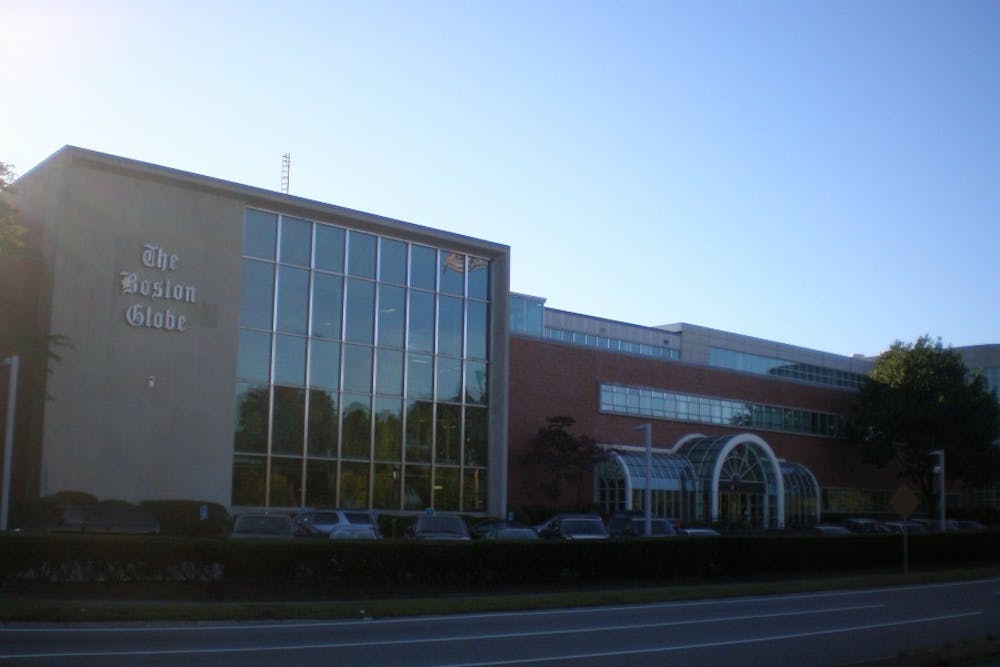By Hailey Mallendick, Senior Staff Writer
Walter "Robby" Robinson, dramatized by Michael Keaton in the now-Oscar-winning film Spotlight, will be on campus Tuesday to speak about his pivotal role as head of the reporting team that first broke stories on Catholic priests' widespread sexual abuse of children.
Robinson, now editor-at-large of The Boston Globe, will talk at 4 p.m. in the Armstrong Student Center Pavilion. As editor of the Globe's Spotlight team, Robinson directed a group of investigative reporters that tackles long, research-intensive stories.
The team began working on the series that highlighted abusive Catholic priests - which would later win the Pulitzer Prize - in 2000. Robinson was the lead reporter and editor of the four-person team. The other members included Michael Rezendes, Matt Carroll and Sacha Pfeiffer. Together, they chose to take on one of the biggest stories the Globe has ever published.
The stories led to 100 charges of sexual assault that were filed against John J. Geoghan, a retired Catholic priest, for abusing young boys in his care between the years of 1985 and 1993.
"It was a difficult investigation to do because there was so much difficulty getting information [from] the church [since they] don't have to file public documents and they have a habit of not speaking to reporters," Robinson said in an interview with The Miami Student. "So, we had to build lists of sources, starting with victims and working from there. It allowed us to create our own database."
To counter the church's notorious secrecy, the Globe had to file several lawsuits before gaining access to records. With the records in their possession, the Spotlight reporters discovered that Cardinal Bernard F. Law - Boston's highest-ranking Catholic official - knew of Geoghan's pedophila for decades and continued to cover it up.
"It was emotionally very difficult to listen to their stories and it sort of really motivated us," said Robinson. "It made us quite angry at the church that they could have allowed this to go on. It really kind of fueled our desire to get the story done and get it out there before the public so that somebody could bring an end to this."
Patricia Newberry, a senior lecturer in journalism, experienced the aftermath of this article and how it changed the way people think about Catholic priests and journalism in general.
"The Boston Globe is considered the first to open the priest pedophile scandal, and other organizations followed," said Newberry. "[It] broke loose a major scandal in the American church that is reported on even today over in Altoona-Johnstown, Pennsylvania. Journalists have played a role in releasing this information."
Newberry said the film powerfully portrayed the importance of journalism.
"I saw the movie when it came out opening night in Cincinnati," said Newberry. "It completely overwhelmed me - the quality, themes, and I was completely [shocked] by the journalism and the priests in Boston."
Newberry was not the only one inspired by the team's stories and the film adaptation. Richard Campbell, chair of the Media, Journalism and Film Department, found the film to be a step forward for journalism.
"Spotlight is one of the best movie portrayals of good journalism and how difficult and complex it is to do that," said Campbell. "As an institution, journalism is not held in high regard since there is bad journalism and it is treated with the same broad brush. This is a great example of good journalism and people have to make the distinction between that."
While professors at Miami applaud the story and its film adaption for exemplifying good journalism, Robinson was impressed with the reception of the film.
"It was surreal. It was a small miracle that the film was made at all because it is very difficult to get financing for it since it doesn't have car chases and explosions," said Robinson. "The fact that it got made, was made so well, did so well with views and in the end one best picture, it is very heartening that the Academy would recognize the importance of the film."

